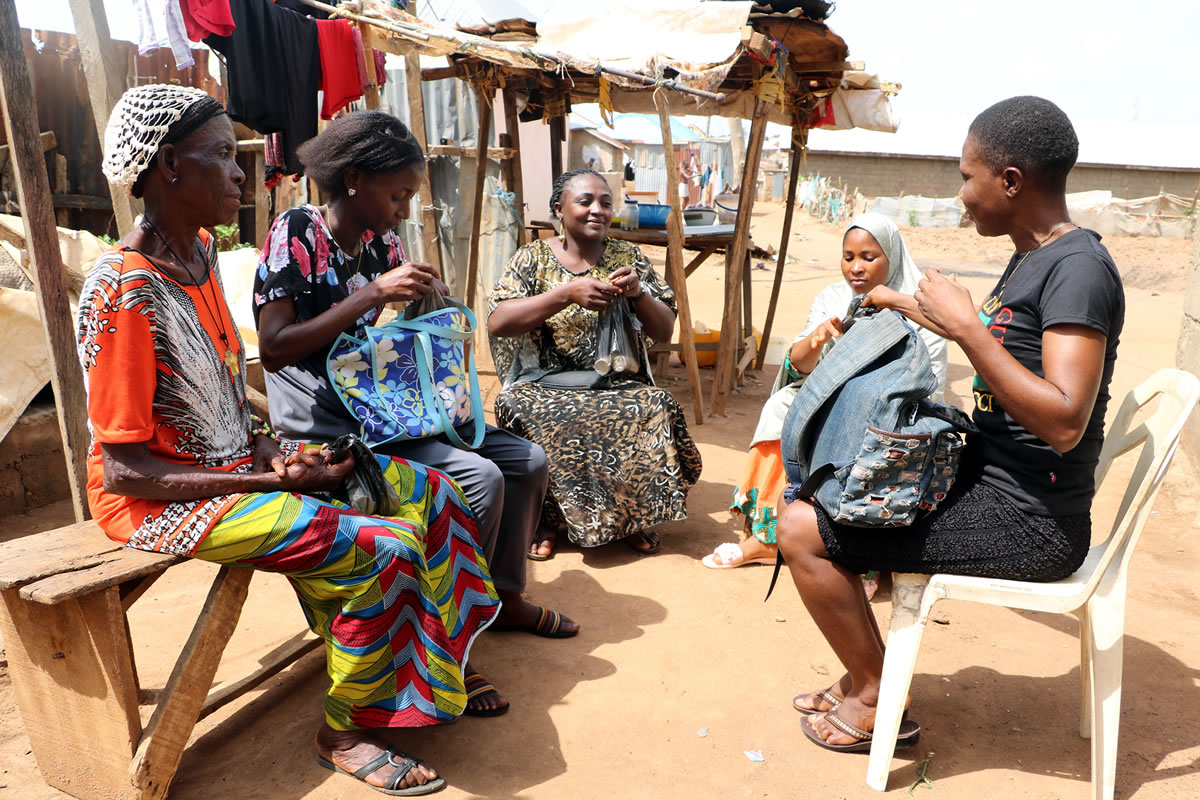One of the worries Caroline Udoh has had since she commenced anti-retroviral treatment in 2007 is her transportation cost of ₦300 or more to the hospital for drug pick-up every two months.
61 year old Caroline, who used to sell home grown vegetables can’t afford to sustain her business anymore due to lack of funds and this makes it even more difficult for her to get to the clinic. “Even when I manage to get money for transportation, I also worry about money to buy food in the clinic because I spend at least six hours on the queue for check-up and drugs.”
Aside transportation, another client, Fatima Mohammed is worried about how to cater for her three year old daughter during long stays at Mararaba Gurku Medical Center where she accesses her treatment. “When I carry her to the hospital, she cries because heat is too much,” she says. She also has to make special arrangements with the teachers of her two elder children because she often stays in the clinic from morning till evening. “I go around 5:30 or 6:00am and come back 4:00 or 5:00pm because of the many people that need to be attended to,” she says.
It is to ease access to antiretroviral treatment and address challenges Caroline, Fatima and many others face that Institute of Human Virology Nigeria (IHVN) introduced the Community ART Group (CAG) initiative.
IHVN Assistant Director Prevention, Care and Treatment, Mrs. Asabe Gomwalk, says that the initiative is for patients who are stable on treatment and only need regular hospital visits to collect their drugs. “Health care providers and officials of support groups create awareness through health education both at the facility and community levels to mobilize People Living with HIV and get them to buy-into this initiative.
Groups of clients who live in the same location are formed and each member collects the drugs on behalf of all other members on a rotational basis. They return to the community, meet at a venue that they have already selected and distribute the antiretroviral drugs amongst themselves.”
Caroline is in one of those community groups and says she worries less about transportation costs now because she only goes for drug pick up once in a year. “Since I joined them, someone goes and collects my drugs and calls me. I meet with them close to my house and we all collect our drugs. I like it!” she says.
Fatima is also in a community group. She is now able to focus on her business of selling zobo and kunu. “Now, it is better because I have time and I’m able to sell my things, bathe my children, carry and pick them to and from school,” Fatima says.

